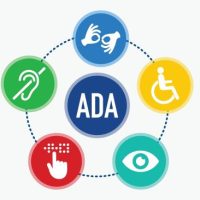Understanding Medical Disclosure Requirements Under the ADA

Do you need accommodations at work because of a medical condition? The Americans With Disabilities Act (ADA) protects you. But many employees don’t understand what they can be asked and when, and what medical information they have to tell their employers.
Time to Disclose Information
There is no time limit on telling your employer about your need for ADA accommodations. And your employer can’t deny you accommodations, just because you didn’t tell them about your disability earlier, or when you were hired, or at any specific time. So long as you have a qualifying disability, you cannot be denied an accommodation for not reporting it at a given time.
However if you are disciplined at work for something before you requested an accommodation, the employer is not required to rescind the discipline. That’s why it’s a good idea to inform your employer as soon as possible about the need for accommodations.
Request Accommodations
Remember that telling your employer that you have a disability or illness or condition, is different than specifically requesting an ADA accommodation.
For example, If you say “I’m undergoing treatment for prostate cancer,” it doesn’t necessarily tell the employer that you are requesting extra time for bathroom breaks. You need to request the accommodation itself, without just assuming your employer knows you are requesting it.
However, you don’t need to use any fancy legal language. Just saying in normal language that you need to use the bathroom more, or sit down frequently, or you need a modified schedule, or whatever the accommodation may be, is sufficient.
Giving Medical Information
Your employer can ask you questions about whether or not you may have a disability or need an accommodation—but only after a conditional offer of employment has been made, not at the application stage (unless you need an accommodation to actually apply).
And whatever questions you can be or are asked, must be asked of all employees. They cannot ask specific questions to you, about your individual particular disability, as that would be disability discrimination.
After you have been hired and are working, employers can only ask questions about your disability, if they are directly related to your job or your ability to do your job. So, for example, if you were using the bathroom excessively, your employer could ask whether there is a medical reason that you are using the restroom so much, before disciplining you for doing that.
Confidentiality of Medical Information
Whatever medical information you give or tell to your employer, must remain absolutely confidential. Your employer can only share what you tell them, with people who absolutely need to know to accommodate you as requested.
And while you do need to explain what accommodation you need, there is a limit to how much medical information your employer can ask for. Generally, you must disclose only what medical information is needed to demonstrate the need for accommodation.
Some employers will ask detailed questions and want to know your medical treatment, medications, prognosis, how long you’ve had the condition, and other details that don’t relate to the necessary accommodation. That is illegal, and you don’t have to disclose this.
Don’t let your employer discriminate against you because of a disability. Get help today. Contact the San Jose employment attorneys at the Costanzo Law Firm today.
Source:
dol.gov/agencies/odep/ada/MythsandFacts
